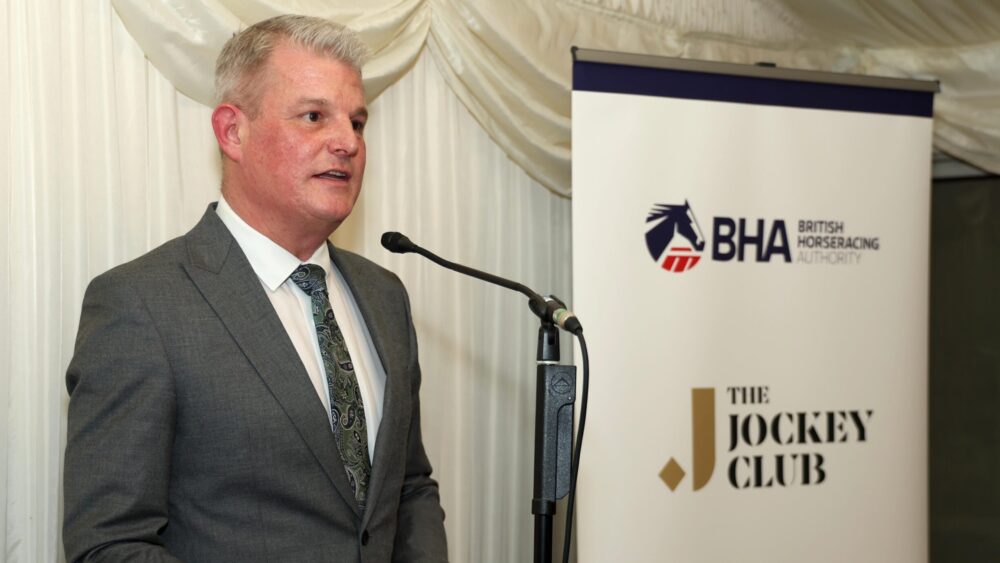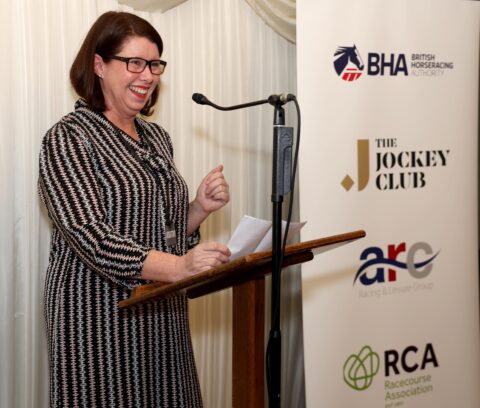The Racing Industry and Politics in 2024 – a BHA Blog

By Jack Barton, Policy and Advocacy Manager at the BHA
In an election year, and with key long-term issues for the sport at stake such as affordability checks and Levy reform alongside demonstrating our commitment to improving and investing in equine welfare, politics is playing a key role in defining the story of British racing in 2024.
The industry’s leadership, supported by public affairs professionals across the sport, is as busy as ever as we tackle these challenges and other policy issues that impact on both our people and our equine participants.
While many people in racing will be unaware of the constant drumbeat of activity between us and politicians and Government officials, it is on behalf of the whole sport that this vital engagement takes place.
Below is an overview of the activity that British racing is currently undertaking as we look to engage MPs in what is a busy political environment.
Who are we talking to?
The Ministers and officials relevant to British racing cover a wide range of Departments (for the reader’s sake, we won’t mention all of those here). In areas where the BHA has regulatory responsibilities, these tend to be of most importance.
There is a reason that Stuart Andrew MP is the most-mentioned man in the Racing Post, and that is because he holds a Ministerial post at the Department of Culture, Media and Sport (DCMS) that has both sport and gambling in the brief. He therefore has Ministerial responsibility for the reforms to gambling legislation and the Horserace Betting Levy.
The recently appointed Lord Douglas-Miller, who joined the Department of Environment, Food and Rural Affairs (Defra) in December 2023, and has both animal welfare and biosecurity and borders within his brief – particularly important with a view to solving some of the post-Brexit issues around the movement of thoroughbreds – is also a key contact.
Supporting them are teams of advisors and civil servants who support the policy objectives of the Government of the day and with whom we work on a daily basis. This is not just limited to Government Departments exclusively, but also arms-length bodies such as the Gambling Commission and Migration Advisory Committee, given our representations around staffing shortages in British racing.
Relationships are built both through regular meetings and, where possible, through site visits which help build a better understanding of the day-to-day activity in British racing, and why we are making certain policy asks. Just last week, we had officials from Defra on a site visit to Huntingdon racecourse.
Our role, however, is not just to target those with Ministerial power, and those who advise them – it is similarly important to cultivate relationships with MPs from all sides of the house. Where this is often easiest is with MPs who have a significant constituency interest in the industry, whether that be a racecourse or large training community, or indeed a personal interest developed from their own love of racing.
We are fortunate to have some highly engaged core supporters on the backbenches in Westminster – and also in the parliaments of the devolved administrations – who support our engagement by asking questions, organising events or attending debates when required.
His Majesty’s Opposition
Given racing’s status as a predominantly rural industry, and the redrawing of the political map at the last General Election, it can be more of a challenge to engage Labour MPs, who mostly have seats in more metropolitan areas.
This is an issue that those at the top of racing are acutely aware of, and we have been engaging more with those in Shadow Ministerial roles.
Reflective of the wider shift in the party, much of what we have heard so far from both the Labour Shadow DCMS and Defra teams has been positive, and we will look to further build on those relationships right up to election day (whenever that may be).
A dinner with Labour politicians in Westminster later this month provides a good opportunity to engage with relevant MPs and Peers, and we are seeking to provide a steer on how British racing could support any potential Labour Government. This follows other political dinners, engagements at private events and BHA-escorted visits to racecourses.
Parliamentary Reception – Monday 5th February 2024
The BHA, along with Arena Racing Company, the Jockey Club and the Racecourse Association, hosted a Parliamentary drinks reception on Monday 5th February. The event, which was sponsored by Laurence Robertson MP, took place in the Thames Pavilion of the House of Commons.
There were 27 MPs and Peers in attendance, including 11 Government Ministers and Shadow Ministers, as well as over 30 guests from the racing and betting industries.
As sponsor and Co-Chair of the All-Party Parliamentary Group on Racing and Bloodstock, Laurence Robertson ‒ whose constituency includes Cheltenham racecourse ‒ kicked off the evening with some opening remarks and was followed BHA CEO Julie Harrington, and Sports Minister Stuart Andrew MP.

Julie Harrington speaking at the Parliamentary drinks reception on Monday 5th February
Both Laurence and Julie urged those on the backbenches to attend the upcoming Westminster Hall debate on affordability checks on 26 February and noted that it will be a vital opportunity to press home to the Government just how strongly racing bettors feel about the checks.
With the proposed checks estimated to cause a £250 million reduction in funding to the sport over five years, Julie also called on politicians to reflect on the fact that this would put jobs at risk in the 500 training yards, 660 stud farms and associated racing supply chains right across the country.
Stuart Andrew MP repeated the Government’s position that any affordability checks will be fully piloted before they are introduced. He also reiterated his intention to implement checks that ‘protect customers without damaging racing’.
The evening was a part of the sport’s overall drive to highlight to parliamentarians the impact that affordability checks are having on the sport, as well as the need for racing to have sustainable funding to remain competitive internationally, which is touched on in more detail below.
The Affordability Debate
Following confirmation that the debate would take place on Monday 26th February, there has been a concerted effort across racing to contact MPs to highlight the event and encourage them to engage with it.
We view the debate as an important moment for our ongoing work – carried out by the industry since formal proposals for the implementation of affordability checks appeared in the White Paper in the spring of 2023 – to highlight our opposition to the current proposals given the potential unintended consequences for British racing, and the impact on the customer experience for racing bettors.
This work has so far included responses to relevant Gambling Commission consultations that have stemmed from the White Paper, the ‘Right to Bet’ survey, the Parliamentary petition and various letter writing campaigns.
While we are unlikely to see an immediate change in Government policy as a result of the debate, it has already been a useful exercise in raising awareness of the issue with MPs, and demonstrating the strength of feeling from racing fans who feel their hobby is being unjustly targeted.
We understand from Racecourse Media Group that almost 4,000 letters have been sent to MPs so far and would encourage anyone who has not yet done so to follow suit.
The number of MPs who have told us that they will attend on the 26th is steadily ticking upwards – and importantly, with a few new faces – and the BHA will continue to work with stakeholders to make sure that every effort is made to get MPs to attend and contribute.
We have also commissioned Regulus Partners to provide some more detailed modelling on the impact of the Gambling Commission’s ‘financial risk checks’ and we believe detail on what these proposals will really mean for the rural communities that rely upon racing will be a powerful tool.
Meanwhile, we have long been aware of the informal regime of affordability checks that started in advance of the release of the White Paper and have consistently raised our concerns with Government. An agreed solution to create more consistency and increase the levels of transparency available to the racing bettor cannot come soon enough, given that current monthly turnover is down by 15-20% year on year.
Upcoming engagement
Following a commitment from Government in the White Paper that the Horserace Betting Levy will be used to help mitigate the impacts of new gambling legislation, British racing has been actively engaging with both DCMS and the betting industry since May 2023 on what future Levy arrangements look like.
With the April deadline not far away, the BHA is expecting to attend a roundtable with Minister Andrew and representatives from betting in the coming weeks as the process nears a conclusion.
As well as this, we will continue to invite MPs to racing events throughout the Spring and Summer as these present good opportunities to engage with MPs from different parts of the country.
Looking further ahead to the Autumn – which seems to be the bookies’ favourite at the moment for an election – the BHA is mapping prospective parliamentary candidates (PPCs) across key racing constituencies across Britain. Importantly, these include a significant number of Labour PPCs who look likely to win seats from the Conservatives.
We are planning an outreach campaign to those PPCs as we look to forge new relationships and bring new MPs up to speed on British racing in preparation for a new parliament. We have some key advocates such as Matt Hancock MP and Conor McGinn MP stepping away from their MP roles this year, so it will be important for us to replace those voices in parliament.
In conclusion
While you could be forgiven as a racing fan for wanting to keep the sport and politics apart, the unique set of events presented to the industry this year means the politics is ultimately hard to ignore.
Work is ongoing, whether that be by writing policy or by engaging parliamentarians, to promote the sport’s best interests and ensure positive outcomes where possible.
Inevitably, much of this work must take place in the corridors of power and will only be visible to those at the heart of Government or those at senior levels in the sport. But we are frequently reminded by politicians and officials when we meet them that when the BHA galvanises a cross-industry effort our voice is heard loud and clear.
